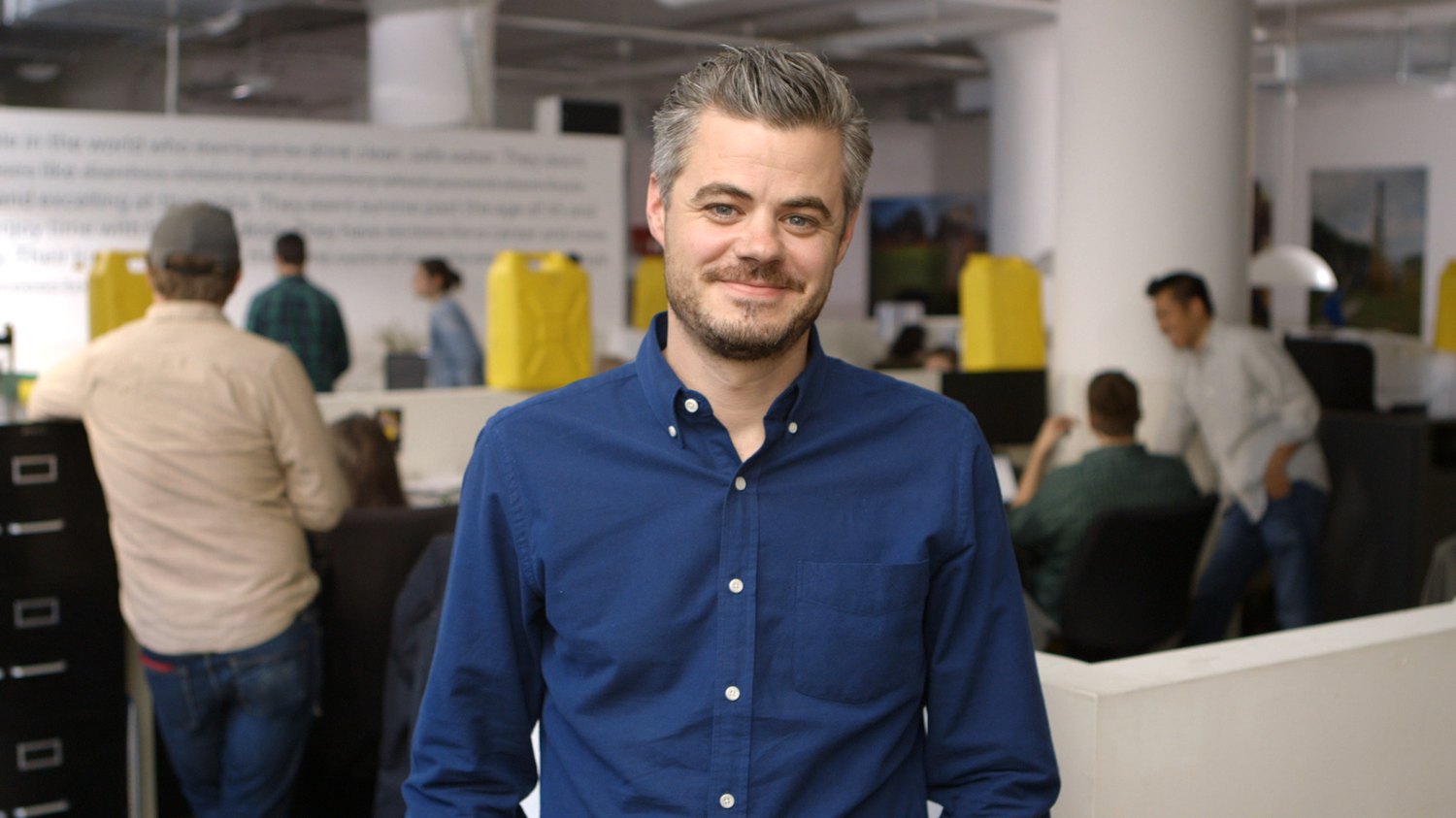There’s something that happens when you become a father that changes the way you look at life. This year, I was lucky enough to welcome my new baby girl Emma Viktoria Harrison into the world on the same day that I was celebrating my 41st birthday, and charity: water’s 10th anniversary.
It’s crazy to think about how different things were a decade ago when we were just getting charity: water off the ground. My soon-to-become wife Viktoria and I were working 80+ hours a week, building the plane while flying it, and not understanding the concept of work-life balance. We were trying not to run out of money, and trying to keep it all together.

But on September 7th, 2016, I got to look back on a decade of wins, losses and learning and take comfort in the fact that we didn’t ever run out of money, and we did manage to mostly keep it all together. And thanks to the generosity of more then 1 million unique supporters around the world, we’ve now worked to provide clean and safe drinking water to more than 21,000 villages across 24 countries for 6.4M people in need.
And at the same time as I was welcoming a new life into our family from a hospital room uptown and thinking about the future, our incredible team was celebrating our 10th anniversary with a party that included board members, donors, volunteers and fundraisers.
With a decade of charity: water behind me and two young children at home now, I’m motivated to work harder than ever to bring people all over the world access to clean and safe drinking water. Because water is life.

I met a 47-year-old woman named Aissa Marou on a recent charity: water trip to Niger, West Africa. Aissa lives in one of the harshest environments on earth — a scene right out of Mad Max with 120º heat and frequent sandstorms. You could see hardship written across her face. Yet she smiled shyly, welcoming us into her simple home made of grass and sticks.
I learned that Aissa had given birth to 10 children, but that she’d watched 8 of them die. She knew all their names, and the age of their deaths. Two after birth, one after five months, and the others at 1, 2, 3, 13 and 16.
She showed me where she got her water, a gaping hole framed by logs that fell 150 feet to a small collection of brown viscous water. Her hands were hard and calloused from many years of hauling buckets up with coarse rope. Although we couldn’t be certain, we believed that contaminated water was responsible for some, if not all those deaths.
Seventeen years ago, Aissa went to her well to collect water. Her newborn daughter Fatouma was cradled on her back, and with one foot on a log at the edge of the well for balance, Aissa carefully pulled the rope beyond her body with one hand and then reached down further on the rope with the other.
But suddenly, Fatouma thrust in discomfort, Aissa slipped, and they both fell straight into the well. Aissa’s body hit the cement wall on the way down, snapping her collarbone. Reacting quickly to save her daughter, she braced herself on the sides of the well at the bottom to keep from drowning and lifted Fatouma up to her shoulder. She screamed for help.
A woman had seen her fall, and ran to find others. Eventually, others in the village came running with more rope and lowered someone down into the well. Aissa saved Fatouma, but went into a coma for days when she reached the surface and told us she was never the same again.
Meeting courageous women like Aissa and seeing other parents struggle to provide their children always strikes a powerful chord inside of me. I simply can’t imagine what these fathers and mothers go through knowing that they can’t provide the most basic need for health and life for their children. The internal struggle they must face giving their children contaminated water from ponds and rivers, knowing that next drink might kill them. And in fact, every single day, more than 1,800 children do die around the world from that next drink.
While I’m grateful for how radically different my life as a father of two in New York City is compared to that of parents in the areas we work, recognizing this is a reminder of how important it is to use the privilege and gifts I was blessed with to help those in need around the world. I don’t believe we have to feel guilty or shameful because of where we were born. But I do believe we all have such a great opportunity to use that position to improve the lives of others. And as a parent, knowing that the work we get to do at charity: water every single day brings other mothers, fathers and their children the most basic for life makes that work even more gratifying.

Over the years, charity: water has taught me so much about being a father. All of the failures, successes, hopes, dreams, and disappointments that I have experienced have turned into important life lessons. I’ve learned about the importance of giving and of radical generosity. I’ve learned about integrity, respect, and kindness. I’ve tried to be generous with my time and also my money and I’ve tried to be of service of others. And as I look forward to the next 10 years, I can only hope that all these lessons I’ve learned can be used to help tens of millions more people around the world get clean water to drink, and also teach my children to live more compassionate and selfless lives.
You can learn more about how to provide clean water to people in need at charitywater.org
Originally published at medium.com


